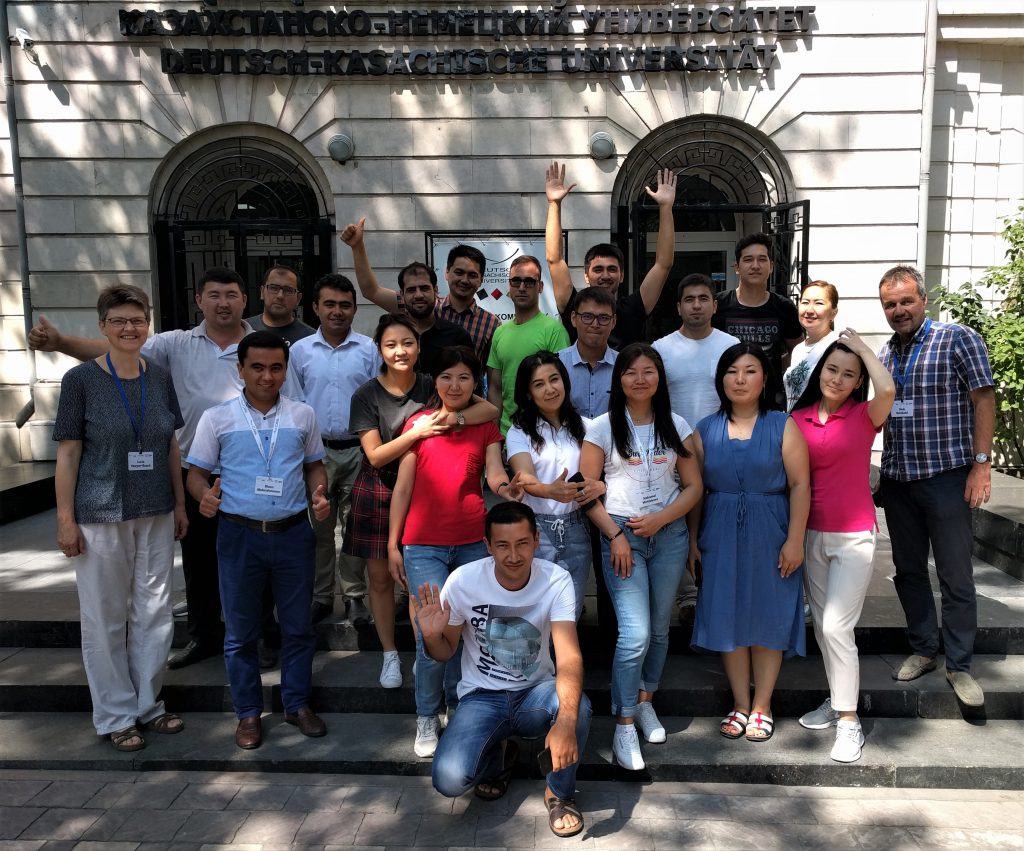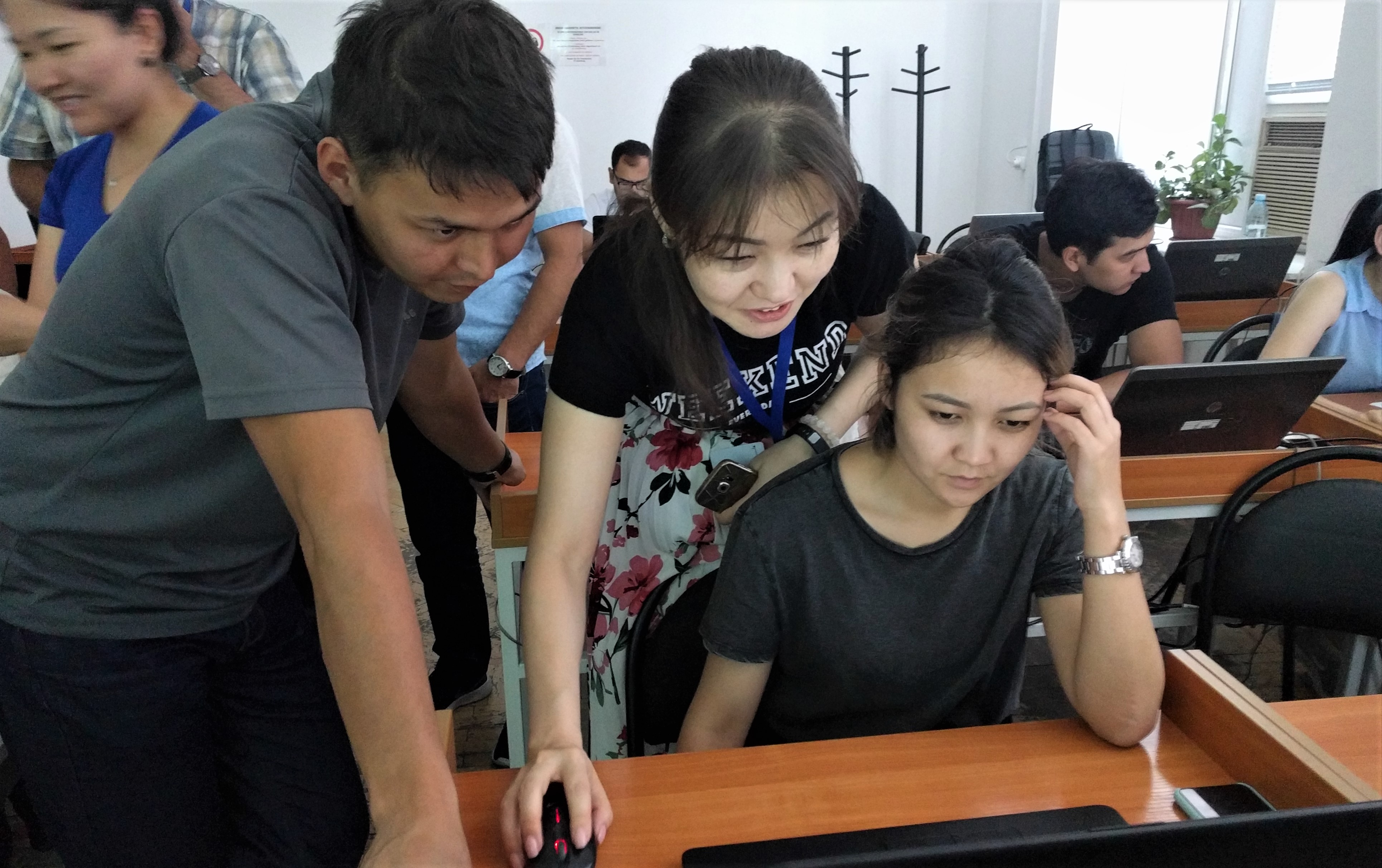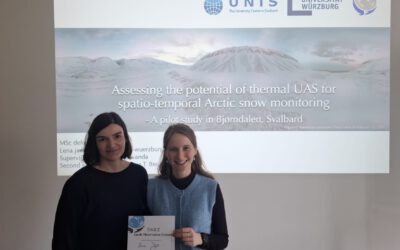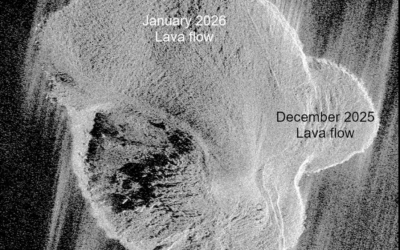
23 master and PhD students as well as junior university teachers and young specialists from government agencies and research institutions participated into the two-week 6th CAWa Summer School “Methods and Tools for the Assessment and Monitoring of Central Asian Water and Land Resources” (July 8-19, 2019) that was hosted by the German-Kazakh University in Almaty, Kazakhstan (DKU). Lucia Morper-Busch and Maik Netzband from the Department of Remote Sensing, Würzburg University, teached in the second week and addressed GIS and Remote Sensing.
Participants came from Kazakhstan, Kyrgyzstan, Tajikistan, Uzbekistan as well as from Afghanistan.
This year’s CAWa Summer School was already the sixth in a row. It was organized by
- the CAWa Project (funded by the German Federal Foreign Office),
- the Natural Resources Institute (NRI) of the German-Kazakh University in Almaty (Kazakhstan),
- the Würzburg University, Institute for Geography and Geology, Department of Remote Sensing (Germany) and
- the Helmholtz Centre Potsdam, GFZ German Research Centre for Geosciences, Hydrology Section (Germany),
in cooperation with
- the Institute of Geography, Almaty (Kazakhstan)
Focus was set on innovative methods and tools for the analysis and monitoring of water and land resources in Central Asia that are of great value in integrated water and land resource management. Therefore, theoretical lectures and practical exercises were combined with discussion sessions on the implementation of new methods and instruments for managing the water and land resources. The program included an in-depth introduction to GIS (using QGIS), an overview of remote sensing applications for water and land resource monitoring, an introduction to climatological data analysis, and an introduction to glaciology.
Particular emphasis was placed on the CAWa online tool WUEMoCA (Water Use Efficiency Monitor in Central Asia).









